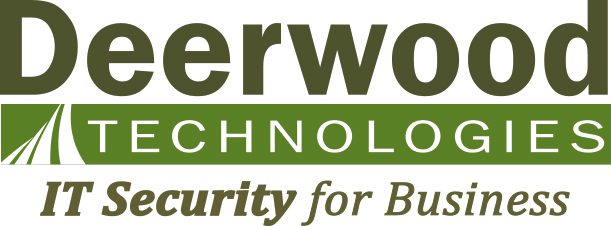Technology drives modern businesses, but keeping up with constant changes is no easy task. With the end of life (EOL) for Windows 10 approaching, it’s a prime opportunity to explore how proactive technology planning and partnering with a managed services provider (MSP) can keep your business secure, efficient, and ready for the future.
Why Technology Planning is Critical
A solid technology plan is more than a to-do list for IT upgrades—it’s a strategic blueprint that aligns your IT infrastructure with business goals. When done right, technology planning ensures your business stays ahead of potential challenges, like outdated systems, security vulnerabilities, and compliance risks.
Take Windows 10, for example. With its EOL, businesses still relying on this operating system will soon face heightened risks as Microsoft stops providing critical security updates. Outdated systems like these create openings for cyberattacks and operational disruptions. Proactive planning ensures you’re prepared for these transitions, keeping your business secure and minimizing downtime.
However, planning doesn’t end with replacing outdated systems. It also includes ensuring scalability, anticipating future needs, and building a roadmap that incorporates advanced cybersecurity measures.
The Role of an MSP in Proactive Technology Planning
An MSP isn’t just a service provider—they are a strategic partner that can help your business navigate IT challenges with confidence. Here’s how MSPs should help businesses like yours stay ahead of technology changes:
1. System Lifecycle Management
MSPs monitor your hardware and software lifecycles, ensuring timely upgrades and replacements. They’ll help you transition from Windows 10 to newer, supported systems with minimal disruption, creating a seamless process that reduces business risk.
2. Cybersecurity Integration
Cybersecurity is a core focus for MSPs. They design and implement multi-layered security solutions, including firewalls, endpoint protection, and intrusion detection, to safeguard your systems against evolving threats.
3. Strategic Roadmaps
MSPs work with you to craft IT roadmaps that align with your business objectives. Whether you’re planning for growth, adapting to market demands, or meeting new compliance requirements, MSPs ensure your IT infrastructure supports your goals.
4. Continuous Monitoring
With 24/7 monitoring, MSPs identify potential risks before they become significant issues. Real-time detection and response minimize downtime and ensure your systems remain secure.
5. Expert Guidance
MSPs offer expert advice tailored to your business. They stay on top of the latest trends, technologies, and threats so you don’t have to, empowering you with solutions that keep you ahead of the competition.
The Broader Benefits of Partnering With an MSP
Managing IT in-house often leaves businesses in a reactive cycle, addressing problems only after they arise. This approach is not only inefficient but also leaves organizations vulnerable to security breaches and operational disruptions.
Beyond keeping your systems up to date, MSPs bring value to every aspect of your business:
Cost Management
Managing IT in-house can be costly and inefficient, especially for small and medium-sized businesses. MSPs provide predictable, scalable pricing models that allow you to budget effectively.
Enhanced Focus
When you offload IT management to an MSP, your internal team can focus on enabling your core business operations instead of troubleshooting IT issues.
Business Continuity
MSPs create disaster recovery plans that protect your business from downtime and data loss during emergencies, ensuring operations run smoothly even in the face of unexpected challenges.
Compliance and Risk Management
Many industries face stringent compliance requirements, from data privacy laws to financial regulations. MSPs specialize in maintaining compliance, helping you avoid costly penalties and reputation damage.
Preparing for What’s Next
Technology is constantly evolving, and businesses need to adapt to stay competitive. The EOL for Windows 10 is a critical reminder of the importance of proactive planning. But preparing for transitions like these is just the beginning.
With an MSP by your side, your business gains access to expertise, advanced solutions, and a strategic partner dedicated to your success. From upgrading systems to defending against cyber threats, MSPs ensure your IT environment supports your business today—and prepares you for tomorrow.
Let’s Build Your Future Together
At Deerwood Technologies, we specialize in helping businesses navigate IT challenges and build forward-thinking strategies. Whether you’re preparing for Windows 10 EOL or looking to enhance your cybersecurity posture, our team is here to help.
Take the first step toward smarter IT management.
FAQs
1. Why is proactive technology planning important for my business?
Proactive planning helps businesses avoid risks like outdated systems, security breaches, and compliance failures, ensuring smooth operations and scalability.
2. What does an MSP do to help with technology planning?
MSPs assess your current IT environment, identify risks, implement upgrades, and create long-term strategies to align technology with your business goals.
3. How can an MSP help with the end of life for software like Windows 10?
MSPs manage system lifecycles, ensuring timely upgrades to supported platforms to prevent security and operational issues.
4. How does partnering with an MSP improve cybersecurity?
MSPs provide advanced solutions like real-time monitoring, threat detection, and multi-layered defenses to protect against evolving cyber threats.
5. How do I know if my business needs an MSP?
If you’re struggling with outdated systems, security concerns, or a lack of in-house IT expertise, an MSP can provide the strategic guidance you need.

